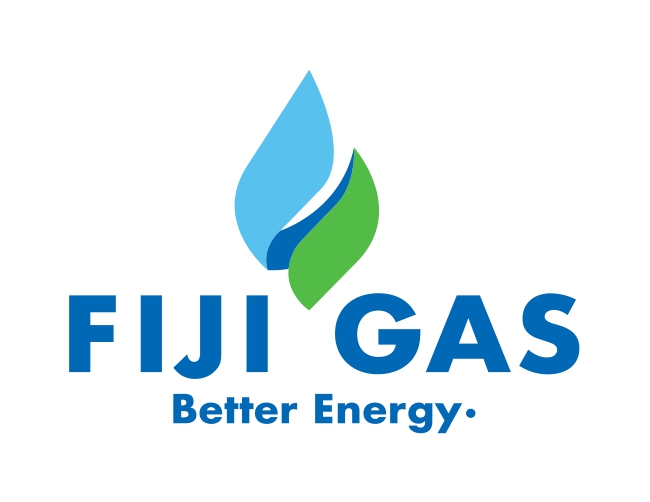- If you smell gas, turn off your gas appliance and call Fiji Gas. If the gas burner doesn’t ignite immediately wait for the smell of gas to clear before you try again.
- Clean your gas cookers regularly. Make sure burners are free of used matches, grease and paper.
- Always stay near a gas appliance when the flame is burning. Keep combustibles papers, cleaning fluids, paints, curtains and rags away from gas burners.
- Don’t allow children to stand on an open oven door – it may tip boiling pots.
- Have gas appliances serviced regularly. When opening an oven door, keep your face well away – a rush of hot air could burn.
- Press ignition button or match BEFORE you turn on the gas. Don’t leave control knobs on when the flame is not burning.
- A gas flame should be blue – if it is yellow, have your gas appliance cleaned.
- Turn cooking pot handles in, and out of reach of children. Teach your children to never use or play with gas appliances.
- Only use gas appliances in a ventilated room – open a door or window.
- Keep the flame smaller than the pot to ensure handles remain cool.
If you can smell gas, check:
- The burner knob on your stove is fully turned to off position
- The connections to your cylinder and gas appliances or equipment, to see if they are loose or still intact
- The condition of the piping between your cylinder and appliance.
1. Ensure fixed LPG Gas installations are carried out by a trained and qualified gas fitter.
2. Keep LPG Gas appliances and fittings in first class condition.
• Check them regularly for any deterioration in performance, signs of corrosion or for minor leaks.
• If any leak of gas is detected, immediately turn off your gas appliances and the gas cylinder and call us on the emergency contact details provided on the back cover of this booklet.
3. Use only equipment and parts specifically manufactured for LPG Gas.
4. A safety valve is fitted to every Fiji Gas cylinder to allow the relief of excess pressure, or in the event of a fire.
• NEVER tamper with the safety valve or other cylinder fittings. Do not use undue force to open or close the main cylinder valve. If in doubt, consult your nearest Fiji Gas branch or call us on the contact details provided at the end of this booklet
• Whenever a cylinder is not in use, close it off at the valve
5. Do Not Stone Cylinders Inside
-
- Never store cylinders inside, in an enclosed area or in an area with excessive heat.
- Never stack cylinders as a cylinder may fall and injure someone.
- Keep cylinders well away from possible sources of ignition or excess heat and in a well ventilated place.
- Adequate ventilation is essential when using LPG Gas to allow ample fresh air for combustion and removal of burnt gases.
- Do not store near or next to other fuels.
6. Checking Your Regulator
-
- Ensure O ring is in place. Check for damages of wear and tear.
- Ensure threads are not damaged.
- Ensure regulator cap is in place.
- Check hose clip is secured and rust free.
- LPG Gas regulators must be kept clean at all times.
7. Checking Your Cylinder
• Check the cylinder valve outlet to ensure that it is clean and has no debris.
8. How To Fit A Regulator
• Place one hand under the regulator and connect the front of the regulator to the cylinder valve outlet and screw it in anti- clockwise.
9. Checking For A Gas Leak
-
- Use soapy water solution and a sponge to check for leaks.
- Turn on the cylinder valve and place foam (soapy solution) around the joints looking for bubbles.
- Spread foam on all the other joints and check for gas leak.
10. In Case Of A Leak
• Bubbles indicate that there is a gas leak.
• In case of a leak, immediately CLOSE the cylinder valve and call us immediately on the emergency contact. details provided on the back cover of this booklet.
11. After
• Always wipe dry the regulator after checking for a gas leak.
• WHY: The ammonia present in some stoves and detergents can react with brass fittings and cause such fittings to crack over a short period of time.
• Ensure you close the cylinder valve after use.
• Always keep your cylinder upright.
12. Fiji Gas cylinders must always be transported, stored and used in the upright position. This ensures the safe operation of the cylinder.
13. Keep cylinders secure during transport. Use the cylinder sealing plug (yellow) whenever the appliance is not connected to a cylinder.
14. Do not use a cooking appliance or stove as a room heater.
15 .Do not use unflued LPGas appliances in bedrooms, bathrooms or sleeping areas.
- Soak in hot soapy water for several minutes
- Using a clean rag, wipe the burners. Do not use scouring pads or harsh cleaners
- Using a straight bin, clean the gas burner holes. Do not use a toothpick
- Rinse in hot water and place upside down on a clean towel to dry
- Return clean, dry burners onto stove

